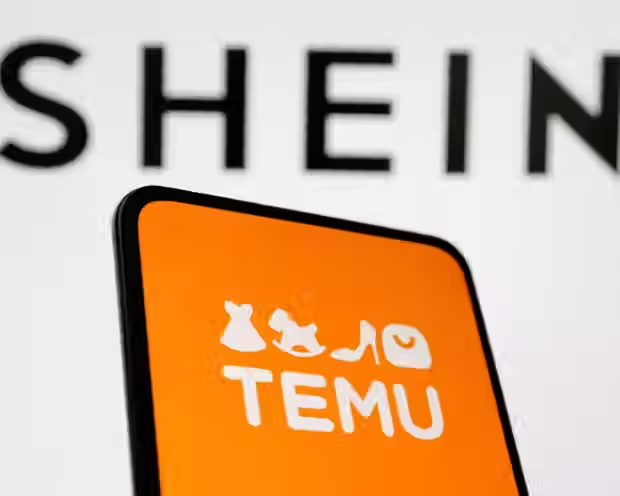EU Commissioner Shocked by Dangerous Goods Sold on Shein and Temu
- Next News
- Jul 21, 2025
- 4 min read
Brussels, Belgium – The European Union's Justice Commissioner, Michael McGrath, has expressed profound shock at the alarming toxicity and inherent dangers found in some goods being sold on popular Chinese retail platforms, Shein and Temu. This revelation comes as EU regulators intensify their crackdown on these rapidly growing online marketplaces.

With an astonishing 12 million low-value parcels entering the EU daily from online retailers outside the bloc, McGrath has publicly vowed to take robust action against the sale of products that blatantly violate European law.
The Commissioner is currently awaiting the imminent results of an EU-wide "secret shopper" operation. This initiative aims to further substantiate existing evidence suggesting that Chinese retailers are systematically circumventing EU regulations.
Disturbing Examples of Unsafe Products
Among the most egregious examples encountered by McGrath were baby soothers equipped with beads that easily detach, posing a severe choking hazard. These soothers lacked the required regulation-sized hole, which is crucial to allow a baby to continue breathing if a bead is accidentally swallowed.
Other hazardous goods highlighted by MEPs in a report released this month include children's raincoats containing toxic chemicals, sunglasses offering no UV filter protection, and kids' shorts with drawstrings exceeding the regulation length, creating a significant tripping hazard.
Furthermore, investigators discovered cosmetics containing butylphenyl methylpropional, also known as Lilial. This chemical is classified by the EU as a substance of "very high concern" and has been banned since 2022 due to concerns about its adverse effects on fertility and foetal development. Last year, the UK government explicitly advised consumers to dispose of any products containing this ingredient.
"I am shocked by it, and I think we have a duty to protect European consumers," McGrath told The Guardian, underscoring the severity of the issue.
National consumer protection authorities regularly issue rapid alerts across the EU, warning of unsafe non-food products through a service called Safety Gate, which also accommodates consumer complaints. Last year, Safety Gate recorded an unprecedented 4,137 alerts, with over a third related to cosmetics, followed by toys, electrical appliances, and automotive and chemical products.
Unfair Competition and Harm to Local Businesses
Beyond safety concerns, McGrath is also worried that these platforms, which have seen an explosive surge in popularity over the past two years, are undermining local European businesses through unfair competition.
"The growth is extraordinary, and it has placed enormous pressure on the systems at member state level," he noted. "I am determined that we step up our enforcement of our product safety laws and our consumer protection rules. It’s not only about protecting consumers, but there is a very serious level playing field issue here for European businesses, because they are expected to compete with sellers who are not complying with our rules."
He further emphasized: "They are incurring significant costs in Europe to comply with our requirements, and they should not be expected to compete with those who are not doing the same."
EU figures illustrate the magnitude of the challenge, showing 12 million low-value items entering the bloc daily, amounting to an estimated 4.6 billion consignments under €150 for 2024. This figure represents double the volume of 2023 and three times that of 2022.
Potential Measures to Address the Challenge
The EU is considering several measures to tackle these systemic issues. These include potentially abolishing the €150 duty-free threshold and introducing a handling fee for each package. Such a fee could deter low-value purchases and help cover the costs of increased customs investigations. This move would mirror a situation in the US, where President Donald Trump signed an executive order to end the $800 duty-free threshold in an effort targeting Chinese sellers. As of June 1st this year, American buyers have had to pay an additional 30% tax or a minimum of $50 per item.
Another possibility under consideration is the creation of an EU-wide customs authority to more effectively manage these systemic challenges.
McGrath stated that it "remains to be seen" if the subject will be raised at an EU-China summit in Beijing on July 25, but he plans to address it directly himself. He confirmed, "We will certainly be engaging directly with Chinese authorities and we will be visiting later on this year."
In response, Shein stated it is investing $15 million this year in compliance and safety initiatives, including 2.5 million product and safety quality tests, and has partnerships with 15 testing centers, including operations in the UK and Germany. The company also reported removing 500 vendors since the launch of its marketplace.
A Shein spokesperson affirmed: "Earning and maintaining the trust of our consumers is paramount, and we are fully committed to ensuring the products we offer are safe and compliant. All of our vendors are required to comply with Shein’s code of conduct and stringent safety standards, and must also abide by the relevant laws and regulations of the markets where we operate."
A Temu spokesperson commented: "Temu takes product safety and compliance very seriously. We have a system of seller vetting, proactive monitoring and responsive takedowns to prevent, detect and remove unsafe products. We work closely with globally recognised testing and certification organisations – including TÜV SÜD, Eurofins, SGS, and Bureau Veritas – to help ensure that the products offered by third-party sellers meet safety and quality standards."









Comments